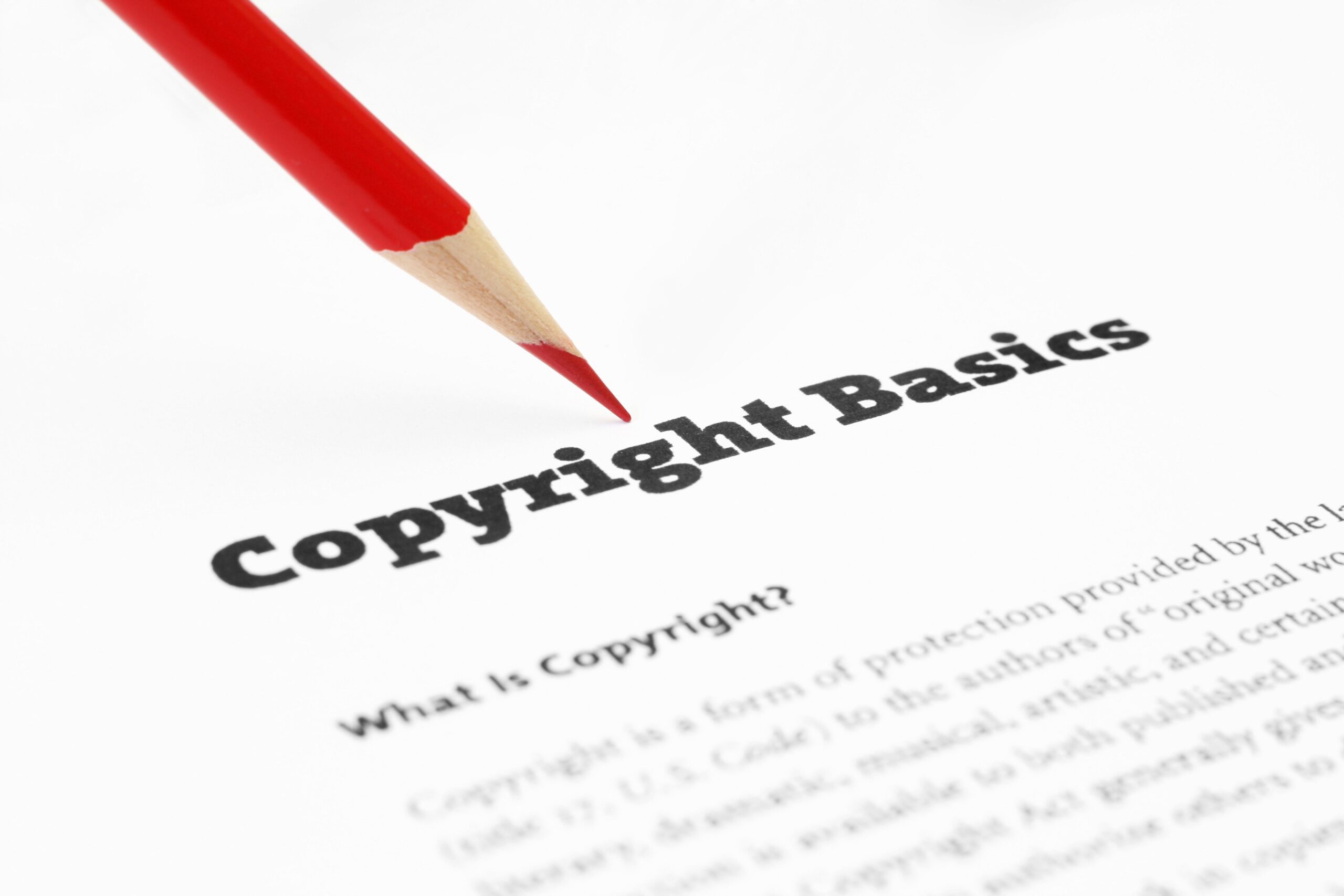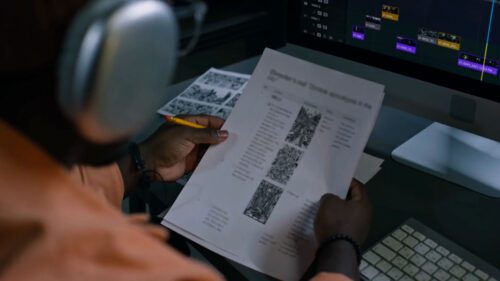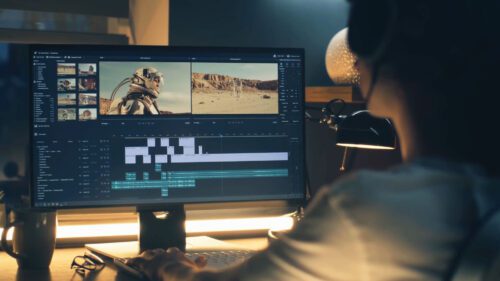There’s been a big uptick in websites that claim to offer free stock photos for commercial use. While this might sound great at first, you should tread carefully. That “free” content could end up costing you hefty legal fees in the long run.
Just because a stock photo, video, or audio file is available for free doesn’t mean you’re in the clear to use it however you see fit. And if you get hit with a copyright claim, ignorance isn’t a defense that will hold up under the law. That’s why you should always do your homework before using any so-called “free” content in creative projects for your business.

Before using free stock photos for commercial use that you find online, here are some questions you should consider:
I found this video on a free stock site and I want to use it in an ad for my business. Can I legally do that?
Unless a website explicitly states otherwise, always assume any free stock content you find is not licensed for commercial use. This includes advertising, marketing materials, presentations, or anything else intended to generate revenue. If you plan on using a piece of stock media for any business purpose, you need to cover all of your legal bases.
Before downloading these files, make sure the original copyright holder (or an authorized distributor) has granted the appropriate commercial license. Some sites do a great job identifying free stock photos for commercial use, others not so much. Most reputable stock media sites usually put licensing information front and center. If you have to really dig to find out for sure, consider that a potential warning sign.
The content I want to use is covered under a Creative Commons license. I should be good to use it, right?
Possibly. But don’t assume a Creative Commons license is an automatic green light to use a piece of content for commercial purposes. There are several variations of the Creative Commons license, each with different usage requirements. Some will include language that you must provide attribution to the original copyright holder. Others may impose restrictions on altering original content in any way (including that hilarious meme you want to post on social media). Be certain you understand exactly what permissions apply to avoid violating the requirements the license spells out.
The free stock photos for commercial use I downloaded are covered under a Creative Commons Zero (CC0) license and are in the public domain. Does that mean I can legally use them for any purpose?
Again, possibly. But don’t make the mistake of seeing the words “public domain” and thinking you’re free to use the content however you want. Especially if the images include people, or even recognizable landmarks in some cases. You’ll need to consider the subject portrayed in any piece of content you plan on using, particularly if it’s for commercial purposes.
It’s rare that any “free” content depicting human beings (even when it’s licensed under CC0) is fully cleared to use commercially. This applies whether the subject of a photo is recognizable or not. Most countries legally require obtaining a model’s consent before using their image for any business purpose. That perfect stock photo you found of a kid on a skateboard taken in public? Check the website for a signed model release. Without this, you’ll have to track down the model (or in the case of a minor, their legal guardian) to get one. It’s the only way to be on rock-solid legal footing before using their likeness in your commercial project.
But it’s not just stock photos of people you need to worry about. Even images of well-known buildings and city landmarks can get you in trouble if you don’t follow the license requirements. What you need is a signed property release. Otherwise that beautiful photo of the Empire State Building might land you a King Kong-sized copyright claim. Photos or videos captured in public settings can typically be legally used for editorial purposes. However, using them commercially is a very different matter. Remember: a copyright holder can grant permission to freely use their work. But that doesn’t necessarily apply to the people, properties, or trademarks it portrays.

Download this image from Storyblocks
But how often do companies actually get in trouble for copyright infringement?
Way more often than they used to. Media recognition technology has grown by leaps and bounds in recent years. Tools like Google Reverse Image Search and YouTube and Facebook’s video and audio recognition systems make it easier than ever for copyright holders to find infringing content. You could get away with improperly using free stock photos for commercial use. But if you do get caught, it can be significantly costlier than the price of full compliance.
So you’re saying I can’t ever use free stock photos for commercial use?
Not at all. If you find a free piece of stock content that’s licensed for commercial use, and you have a signed model and property release, you should be good to go.
Just know that most free stock media services won’t help you out if a legal claim does arise. The responsibility for using stock content lies with the publisher (aka, you or your business), regardless of whether you were aware of the infringement. That means you will be the one coughing up the cash if anyone makes a claim. And generally speaking, the bigger the business, the bigger the claims.
In contrast, most stock media services where users pay to license content will offer a level of indemnity to their customers in the event of a legal challenge.
How can I avoid copyright infringement claims when using free stock photos for commercial use?
Great question. The best way to avoid any surprise copyright claims is to license your stock content from a reputable source. Avoid cutting corners on permissions and licensing and hoping nobody notices. Getting caught means you‘ll be on the hook for tens of thousands of dollars in damages.
Why is a Storyblocks Business License the best deal for me?
Both the Storyblocks Individual License and Storyblocks Business License are available for video, audio, and image assets. Both license options are royalty-free and offer unlimited distribution for print, digital, and productions. The Individual license provides $20,000 of legal indemnification, and any downloaded assets are licensed to the individual account holder.
There are several reasons why the Business License may be right for your company:
- With a Storyblocks Business License, assets are licensed to your business rather than an individual, so any content you or members of your organization download from us will be covered.
- Anything you download is from us will be royalty-free and clearly marked as released for commercial use.
- Storyblocks has your back if any claims arise. Members with a Business License get up to $1 million in indemnification for all Storyblocks users at their organization, the highest level of coverage offered industry-wide.
- Storyblocks handles the complexities of licensing for you. We have a professional team of content licensing specialists on staff, dedicated to making sure we do right by both our customers and contributors.
On top of everything else, Storyblocks Business License holders also get unlimited downloads from our audio, video, and image libraries. You and your team can download as much content as you need for one flat annual price.
Protect your business from unwanted legal fees and avoid costly copyright infringement claims with a Storyblocks Business license. Our team is available to answer any licensing questions so you can make smarter, safer decisions about the stock media you use for your next project.
Editor’s note: We updated this article to include additional information. It was originally published on November 21, 2019.



